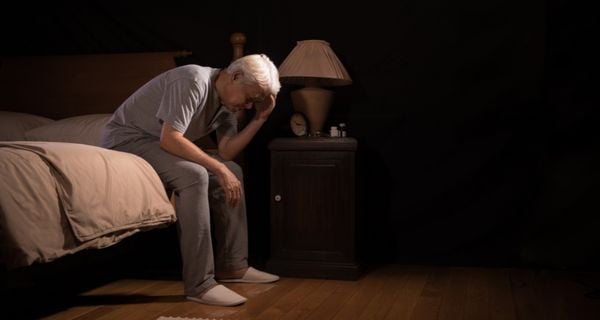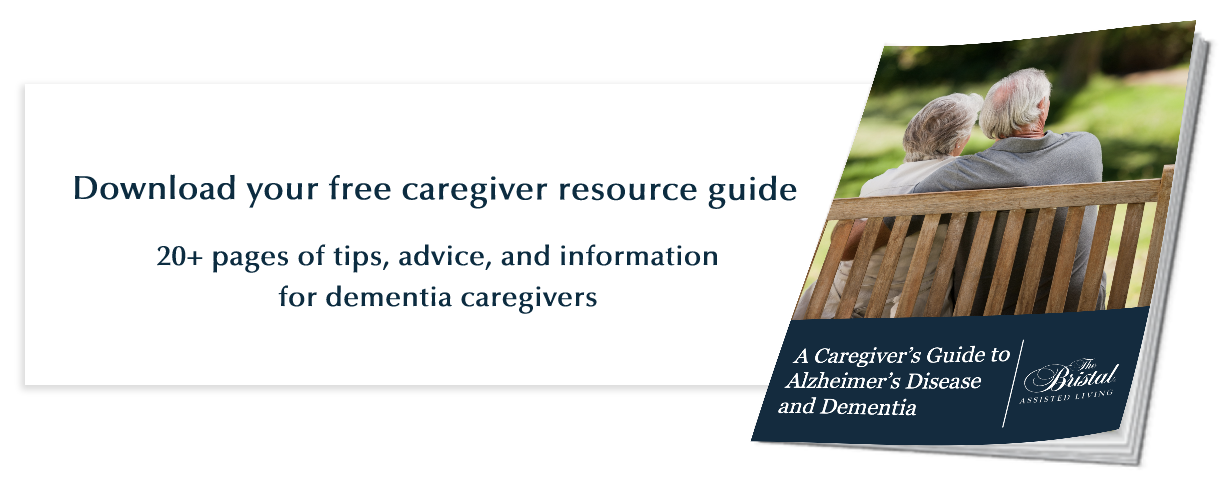If you have a loved one with Alzheimer’s disease or dementia, you may have noticed unusual behavior that occurs in the evening hours and/or nighttime.
It could be what’s known as “sundowning,” which the Alzheimer’s Association defines as increased confusion and disorientation beginning at dusk and continuing through the night.
According to Brandon Dennis, a neuropsychologist with Norton Neuroscience Institute, sundowning is common among those with dementia.
Watching for Symptoms of Sundowning
Here at The Bristal Assisted Living, we provide a specialized memory support program called Reflections to help aging adults manage Alzheimer’s disease and other memory-related cognitive disorders. Our staff is trained to identify cognitive challenges, including sundowning.
You can also learn how to monitor sundowning in your loved one by watching for the following symptoms:
- Confusion
- Rocking in a chair
- Anxiety
- Crying or yelling
- Paranoia
- Aggression
- Ignoring directions
- Pacing
- Wandering
- Insomnia
Is it Sundowning?
Many of the above symptoms characterize Alzheimer’s disease in general. How do you know, then, if they indicate sundowning?
The best way to determine this is to keep track of the occurrences. If your loved one is displaying the same extreme behaviors around the same time each day, typically late in the afternoon and into the evening, then it is likely that he or she is experiencing sundowning.
Related: Ways to Cope with the Symptoms of Sundowning Syndrome >>
Understanding the Causes of Sundowning
Although exact causes are unknown, there are numerous theories about what triggers sundowning. They include:
- Exhaustion
- Hormonal imbalance, such as melatonin levels
- Disturbance in sleep patterns
- Decreased daylight, particularly in winter
- Inability to distinguish dreams from reality
- Reactions to verbal or nonverbal communication, such as frustration
- Loss of routine
Another possible contributing factor is that evening is a period many older adults may have grown accustomed to experiencing as a busy time, filled with obligations. Children came home from school, spouses returned from work, and meals were often prepared and served.
More specific causes may even prompt sundowning; perhaps there’s an unmet need that the individual cannot express. Such needs might include a visit to the bathroom, a snack, a glass of water, or the alleviation of pain.

Managing Sundowning Symptoms
There are effective methods of managing sundowning symptoms. Take the scenario of an unexpressed need, for instance. In such cases, the caregiver may be able to figure out exactly what that need is and redirect the behavior accordingly.
If this approach does not work for you, know that there are many more promising techniques you can try. Read our blog to learn more about preventing and coping with sundowning.
Related: Tips for Preventing, Coping with Sundowning >>
Free Caregiver Resource Guide
Find more tips for caregivers in our free resource, A Caregiver’s Guide to
Alzheimer’s Disease and Dementia. This guide includes more than 20 pages of information to help you care for a loved one with Alzheimer’s disease or dementia.



